16 DAYS CAMPAIGN NEWSLETTER- 2011
Vote
Peace, Stop Sexual Violence!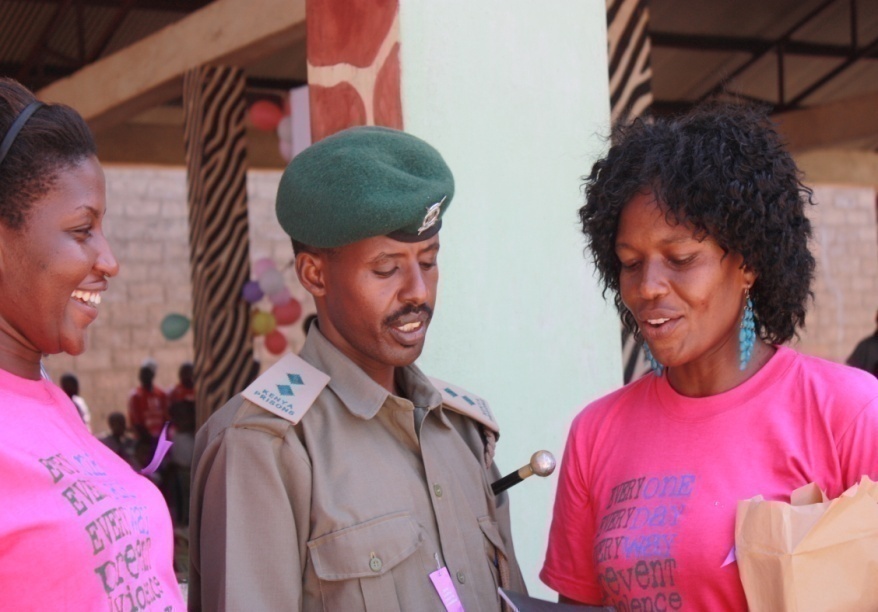
Coast Women In Development welcomes you yet to her newsletter of activities that she participated in the 16 days campaign against gender based violence from 25th November to 10th December 2011. Last year CWID did her campaign at the Shimo La Tewa Main Prison with the Badilika Sexual Offenders Group at the prison.
From
Left, Liz Aroka from ICRH, Abbas Alnoor from Shimo
La
Tewa Prison and Betty Sharon CWID.
In this edition, we feature;
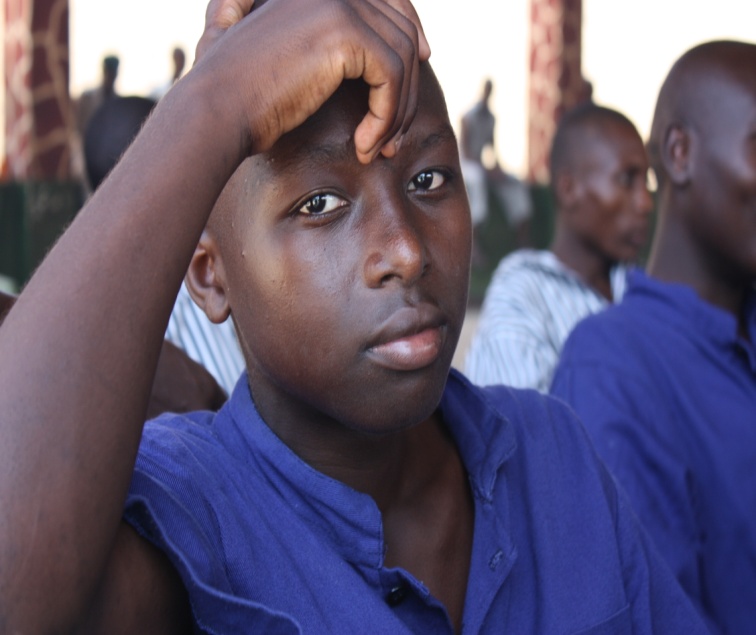
CONTENTS.
-Breakfast meeting with the media- 24th Nov
-16 days campaign launch- 25th November
-National launch of international day for persons with disabilities - 28th November
-World AIDS Day- 1st December.
-16 days at Bangladesh Changamwe-2nd December
BREAKFAST MEETING WITH THE MEDIA AT PRIDE INN HOTEL ON 24/11/2011 ABOUT THE PWANI GBV
NETWORK 2011 16 DAYS CAMPAIGN AGAINST GENDER BASED VIOLENCE- GBV ACTIVITIES.
T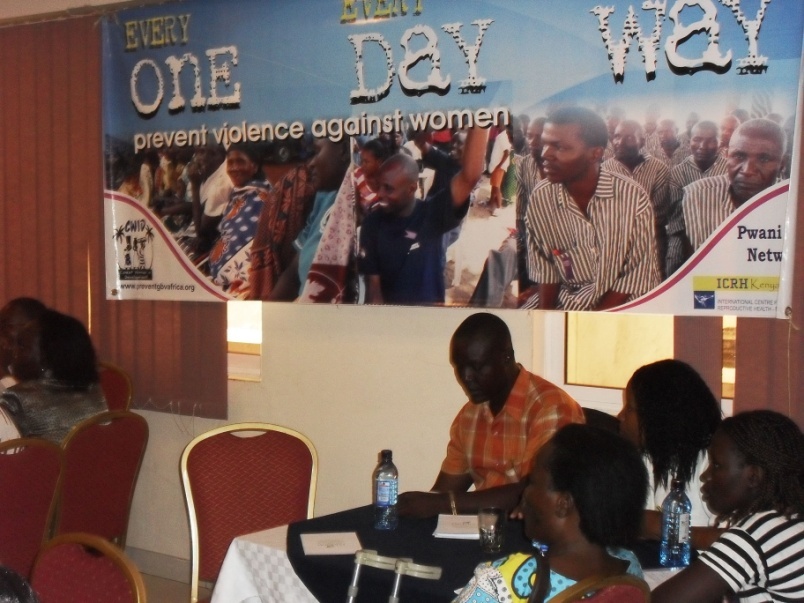 he breakfast meeting
brought
together members from
other civil societies working on GBV, prison officer, the mediaa nd the
Pwani GBV network members. It was convened by Coast Women In
Development – CWID in collaboration with the Pwani
GBV
network.
The media was asked to give priority to GBV news at the Coastal
region and nationally. And with the elections coming soon,
there is a
need to address GBV issues to prevent a repeat of the past happenings
thus this year’s national theme for the 16 days
campaign
he breakfast meeting
brought
together members from
other civil societies working on GBV, prison officer, the mediaa nd the
Pwani GBV network members. It was convened by Coast Women In
Development – CWID in collaboration with the Pwani
GBV
network.
The media was asked to give priority to GBV news at the Coastal
region and nationally. And with the elections coming soon,
there is a
need to address GBV issues to prevent a repeat of the past happenings
thus this year’s national theme for the 16 days
campaign
Vote Peace -- Stop Sexual Violence.
Pwani GBV Network members at the Breakfast meeting.
The Pwani GBV network had taken another aspect of preventing GBV, many organizations work with the GBV survivors and not the sexual offenders. Working with the offenders has contributed to a lot of challenges the main being accessing funds to run the program, it therefore needs to publicized for people to realize that GBV can be stopped if the root cause who in this case are the sexual offenders are reached out to.
Members of the network were also challenged to become motivated and capacitated to develop the passion and interest to work towards their mission which is to eliminate all forms of GBV even without a donor. A challenge was thrown to the participants to stop looking at what they can offer as an organization and start thinking of what they can contribute as an individual towards a GBV free society. One of the network members inspired the network members after she gave out her one month’s salary to help in the preparation of the 16 days campaign launch.
16 DAYS CAMPAIGN AGAINST GENDER BASED VIOLENCE- GBV LAUNCH
HELD ON 25th NOVEMBER 2011 AT SHIMO LA TEWA MAIN PRISON.
Every One, Every Day, Every Way, Prevent Violence against Women
T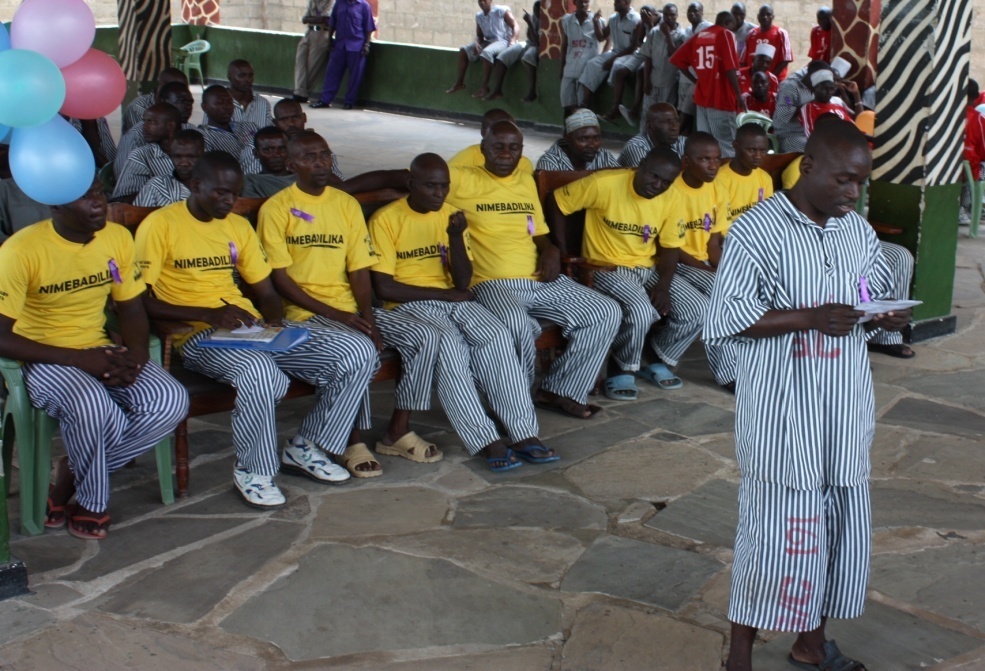 he
day was marked with exciting entertainments from the traditional
dancers, the prisoners’ Protestants choir, acrobats, poems
and
songs from the inmates at the Main prison and the boys at Borstal
Institution.
he
day was marked with exciting entertainments from the traditional
dancers, the prisoners’ Protestants choir, acrobats, poems
and
songs from the inmates at the Main prison and the boys at Borstal
Institution.
The
chief guest speaker Assistant Commissioner of Prisons Margaret Tsuma
emphasized on perpetrators of sexual violence to be given special
attention to understand the root cause of their actions because many
times they are condemned and not asssisted.
Badilika group members in yellow tshirts on the forefront.
She stated that alot of awarenes needs to be done in the communities to embrace and reintegrate the prisoners back in the society once they are through with their jail term, this will also help in their healing process because many of them once released face a lot of stigma in the society prompting them to commit the crimes again and get back to the prisons.
She encouraged the Badilika initiative to be extended even outside the prison to educate the society on GBV, and felt it would create more impact if ex prisoners took lead in creating awareness in their respective comnities. She appreciated the in mates who had taken a lot of courage to join the group and said other prisons should take the chalenge and do the same.
In Kenya, Vote Peace, Stop Sexual Violence was the theme of the year, it was relevant in relation to the election coming up next year 2012 and the violence that people, especially women went through in the last post election violence in 2007.
She appreciated CWID and the Pwani GBV network for initiating the programme and their commitment to make it a success, she assured the project her full support.
VCT Services
Family Healthcare Options Kenya -FHOK provided VCT services to the inmates. Around 20 inmates voluntary tested for HIV. FHOK also provided treatments for minor illnesses like malaria, cold, flu and chest problems.
.
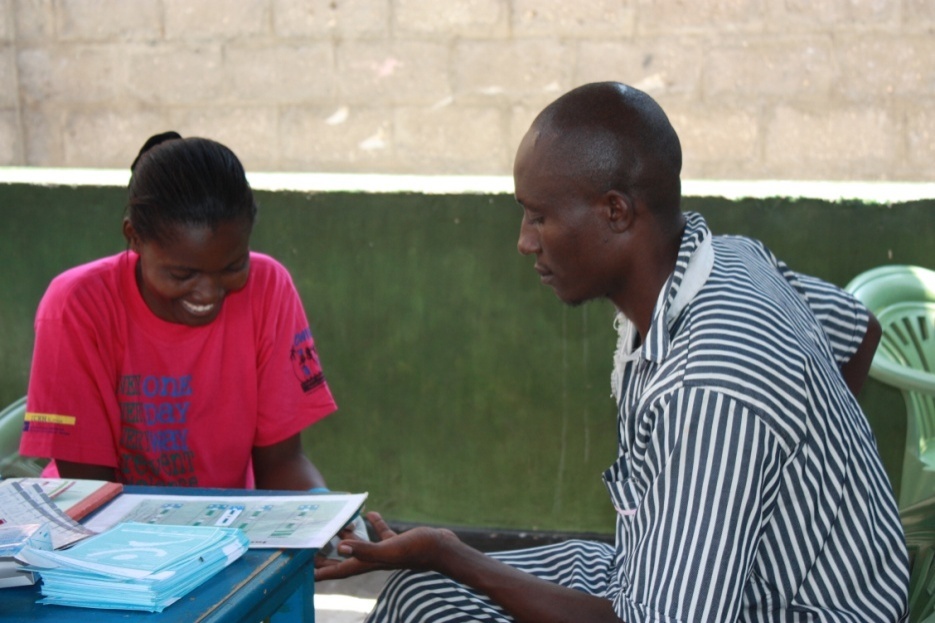
One of the inmates voluntarily testing for HIV
Emerging issues.
Some communities need to stop the archaic traditions that encourage violence, being a male prison, most of the GBV cases have been found to be due to negative masculinity, a mentality that most of our cultures have shaped men to be. Most of domestic violence cases are due to negative masculinity giving the men more power over their wives in the families.
There was need for psychological counseling for the in mates to make them aware of the effects of their crimes and to eliminate self blame and stigma that they may be going through even back in their communities. Counseling will also enable them embrace the women and girls in the community with a positive mindset and not that of abusing them.
The judicial system should be strengthened to avoid putting innocent men behind bars because it can also lead to aggression of the inmates and prompt them to sexually abuse women and children once out of prison. NGOs would also play a major role in creating awareness in communities to embrace the inmates once they are back in their comunities
THE NATIONAL LAUNCH OF INTERNATIONAL FOR PERSONS WITH DISABILITIES DAY-MOMBASA COUNTY AT KHADIJA PRIMARY SCHOOL ON MONDAY 28TH NOVEMBER 2011.
3rd December is the Worlds Day for People With Disabilities -PWD, however PWDs in the Coast region gathered at the Khadija Primary school for the national launch of their momentous day. The PWD representative of the Mombasa County said that the day was very important for all PWD’s to adress their grievances. For a long time PWD’s have been forgotten and their rights violated as they face major challenges in accessing employment opportunities, education and even good health to support their lives.
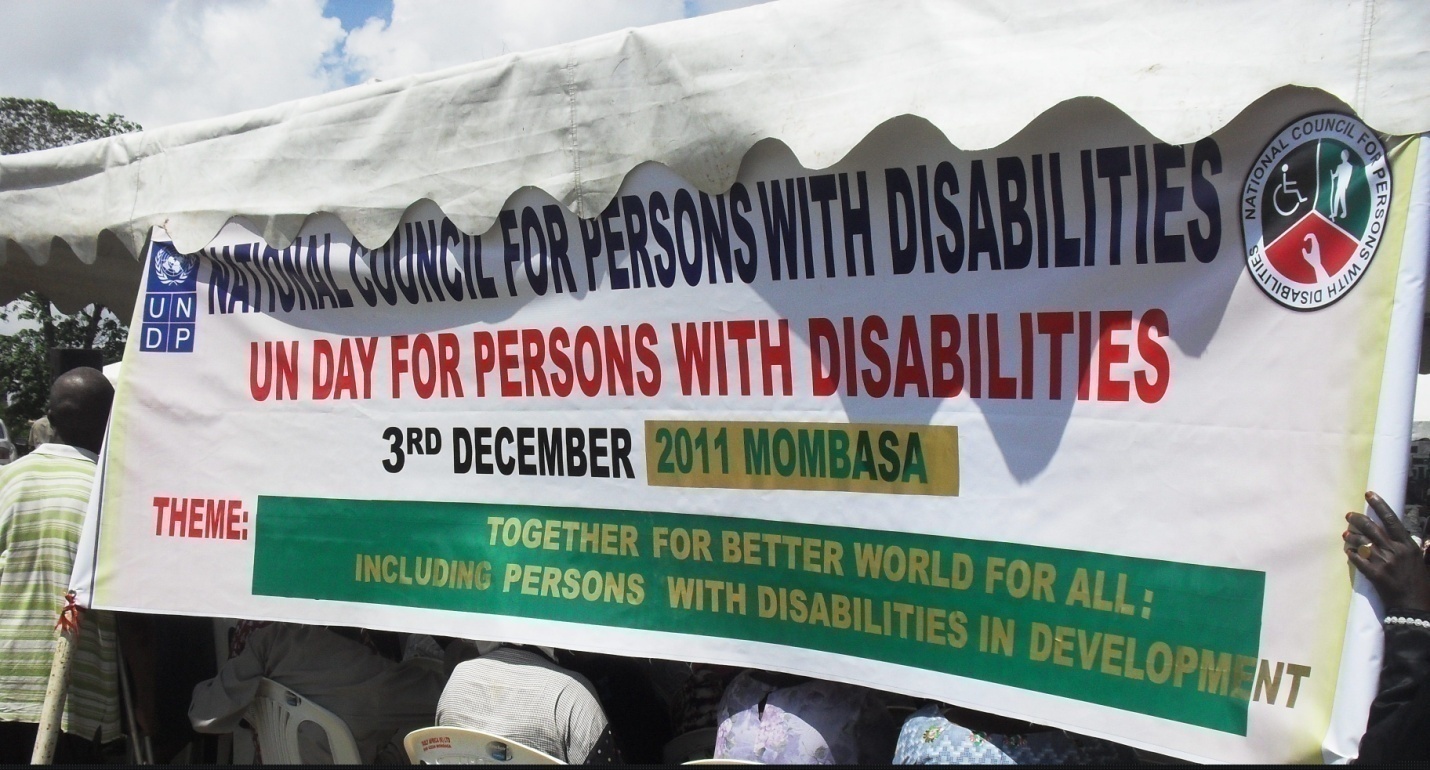
The Deputy Minister for Gender, Children and Social Development who was also the guest speaker said that issues with PWDs are serious and need to be dealt with a lot of empathy. There emerged a need of the number of PWDs in Coast region to be identified so that the government can budget for their support, everyone fits inside the budget.
PWDs revealed that that it’s high time that PWDs should be respected, taken care of the amount given to the 4000 by the government should be increased, and houses, cars, and other public facilities be constructed PWD friendly to enable them access every part of information.
GBV LAUNCH BY APHIA PLUS ON 2nd DEC 2011 AT BANGLADESH GROUND
T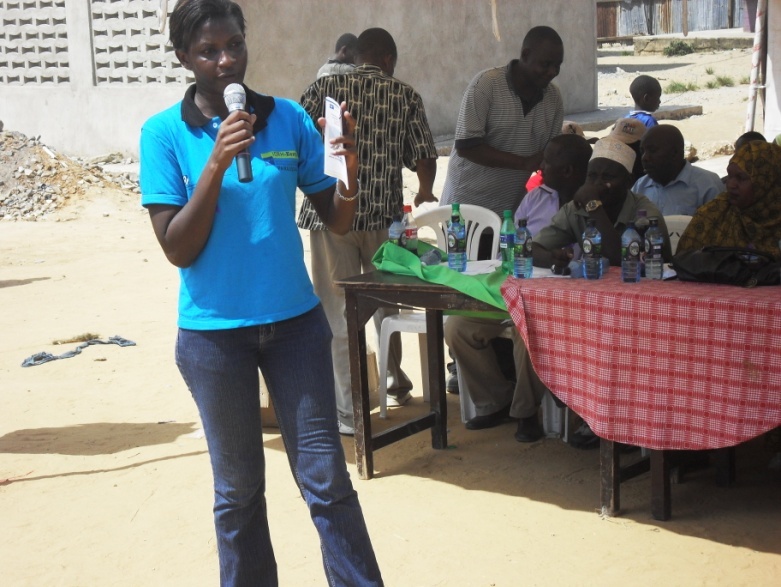 he
16 days campaign also brought together stakeholders to hold awareness
campaigns in their regions within the 16 days to create awareness on
GBV prevention. A public forum was therefore convened by Aphia plus
Coast at Bangladesh ground in Changamwe. Sexual and gender based
violence has been a serious human rights concern that is directly
against the person on the basis of gender or sexes. Representatives
from Gender Based Violence- GBV recovering centre at Coast General
Hospital highlighted the cases they receive everyday which includes
the acts that inflict physical, mental or sexual harm.
he
16 days campaign also brought together stakeholders to hold awareness
campaigns in their regions within the 16 days to create awareness on
GBV prevention. A public forum was therefore convened by Aphia plus
Coast at Bangladesh ground in Changamwe. Sexual and gender based
violence has been a serious human rights concern that is directly
against the person on the basis of gender or sexes. Representatives
from Gender Based Violence- GBV recovering centre at Coast General
Hospital highlighted the cases they receive everyday which includes
the acts that inflict physical, mental or sexual harm.
Liz
Aroka from ICRH- K and a human rights lawyer adressing
the
congregation.
Pwani GBV team present also made a significant stride within its policy and legislative framework relating to Sexual GBV and other health related human rights through a different passage. The representatives from the health sector also spoke on GBV related cases to HIV. They sighted some of the cases they receive in hospitals and felt the need to enact prevention measures to fight GBV in the region. The area leaders of Changamwe also spoke on the situation of GBV cases in the region and urged the residents to be ready to give evidences available and even be witnesses when needed. He also asked them to make quick responses to matters concerning gender based violence.
Madam Liz Aroka from International Center for Reproductive Health – ICRH-K took the congregation through the process of reporting GBV cases from hospital or their rescue centers to the police stations and finally to the courts. She also emphasized on the importance of keeping the evidences safe.
Services like counseling and testing, cervical cancer screening, breast examination, TB screening/family planning/STIs treatment were provided in the function.
WORLD AIDS DAY ON 1ST DECEMBER 2011 AT KHADIJA PRIMARY SCHOOL.
‘GETTING TO ZERO INFECTIONS’
Coast Region residents gathered at Khadija Primary school to mark the International AIDS day with the infected and affected. The theme being ‘Getting to zero infections’. The District Commissioner of Kisauni. Mr Tom Andere who was the chief guest represented the office of the president. Also present in the function were, the D.C, Chiefs, sub-chiefs, NGOs, support groups of people living with HIV, and the community members.
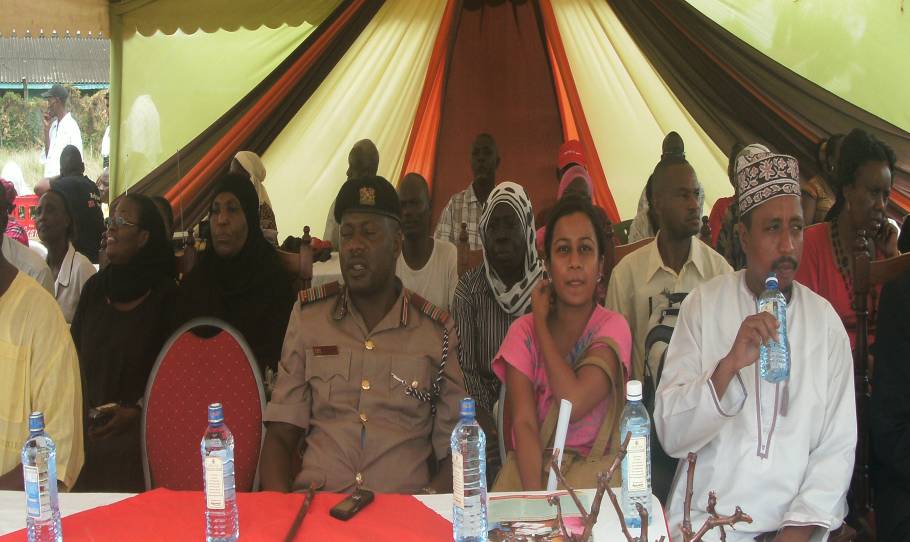
District Commissioner Tom Andere together with other regional leaders gracing the ocassion.
HIV/AIDS was still mentioned as a serious disaster in the country and even in the region, the most affected being the youths. It has led to loss of very productive citizens, skills and manpower driving the country into poor economy, thus poverty. Participants were requested to take the responsibility of testing to know their status in order to prevent and manage HIV infection. Organizations dealing with the fight against HIV/AIDS were requested to create more awareness to the people in the grassroots.
High rate of drug abuse in the region was termed as a major contributor to the spread of HIV/AIDS infection. In the hospitals, the equipments to cater for HIV/AIDS patients are inadequate. The infected persons were also requested to be responsible take proper prescriptions of the drugs to avoid re-infections. A lot of money was also said to be directed towards the HIV/AIDS kitty contributing to poor economy.